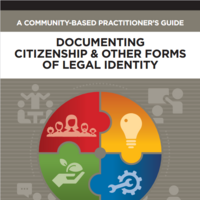Search
Books+
Searching 1,730 books
Search related to the career Attorney
Attorney:
An attorney is a legal professional who is licensed to practice law and provide legal advice and representation to individuals, organizations, or government entities. Attorneys are also commonly referred to as lawyers or counselors. They are trained in various areas of law and are responsible for advocating for their clients' interests.
Roles and Responsibilities:
1. Legal Advice: Attorneys provide legal advice to their clients, helping them understand their rights, obligations, and legal options in various situations.
2. Representation: Attorneys represent their clients in legal proceedings, such as court hearings, negotiations, or mediation. They present arguments, examine and cross-examine witnesses, and submit legal documents on behalf of their clients.
3. Research and Analysis: Attorneys conduct thorough research and analysis of legal issues related to their cases. They review statutes, regulations, case precedents, and other legal documents to build a strong legal strategy.
4. Document Preparation: Attorneys draft and review legal documents, including contracts, wills, pleadings, and agreements. They ensure that these documents comply with the applicable laws and protect their clients' interests.
5. Client Representation: Attorneys act as advocates for their clients, representing their interests and ensuring their rights are protected. They work towards achieving the best possible outcome for their clients, whether it is in a criminal, civil, or administrative matter.
6. Negotiation: Attorneys negotiate on behalf of their clients to reach settlements or agreements outside of court. They use their legal knowledge and negotiation skills to secure favorable terms for their clients.
7. Ethical Obligations: Attorneys have ethical obligations to maintain client confidentiality, avoid conflicts of interest, and uphold the principles of professional conduct.
8. Continuing Education: Attorneys are required to engage in ongoing professional development to stay updated with changes in laws and legal practices. This ensures they provide competent and effective representation to their clients.
Specializations:
Attorneys often specialize in specific areas of law, such as:
- Criminal Law: Defense attorneys represent individuals accused of crimes, while prosecutors work on behalf of the government to prove guilt.
- Civil Law: Attorneys handle disputes between individuals or organizations, including areas like personal injury, family law, employment law, and contract disputes.
- Corporate Law: Attorneys advise businesses on legal matters, such as contracts, mergers and acquisitions, intellectual property, and compliance with regulations.
- Intellectual Property Law: Attorneys protect and enforce intellectual property rights, including patents, trademarks, copyrights, and trade secrets.
- Environmental Law: Attorneys specialize in legal issues related to environmental regulations, conservation, and sustainability.
- Immigration Law: Attorneys assist individuals or organizations with matters related to immigration, visas, citizenship, and deportation.
- Estate Planning: Attorneys help individuals plan for the distribution of their assets and the management of their affairs after death.
Attorneys play a crucial role in the legal system, ensuring access to justice and providing legal guidance and representation to those in need.
Source: Various AI tools
Law
Books tagged law
Professors
Entrepreneurship
Books tagged entrepreneurship
Citizenship
Books tagged citizenship
Arduino
Books tagged arduino
Artificial intelligence
Books tagged Artificial Intelligence
Marketing
Books tagged marketing
Searched in English.


















































